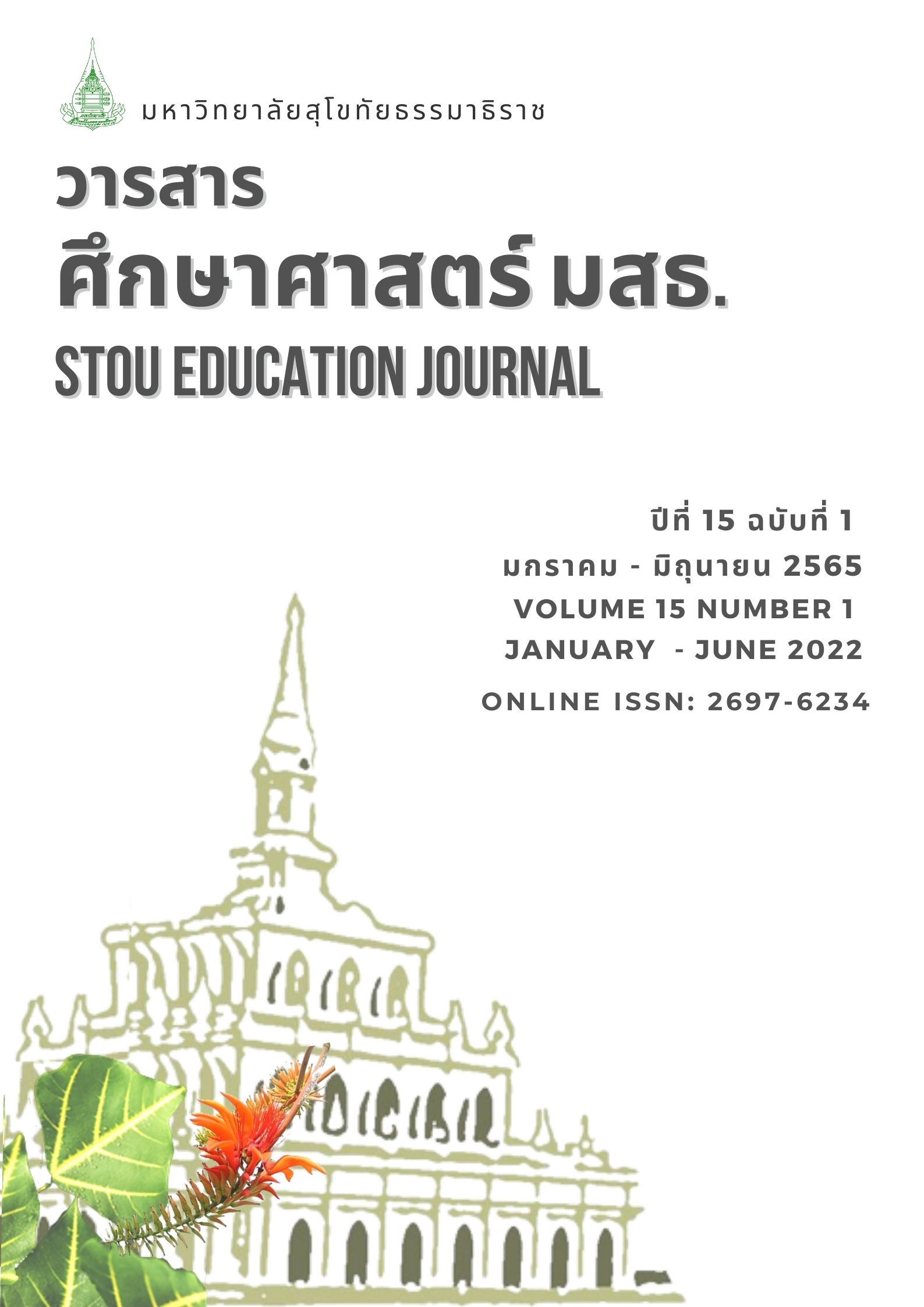การประเมินโครงการวิจัย: เทคนิควิธีการและการให้ข้อเสนอแนะ
Main Article Content
บทคัดย่อ
การประเมินโครงการวิจัย เป็นกระบวนการตรวจสอบและตัดสินคุณภาพของโครงการวิจัยตามเกณฑ์ลักษณะของโครงการวิจัยที่ดี โดยมีวัตถุประสงค์สำคัญเพื่อค้นหาจุดเด่น และจุดที่ควรปรับปรุงแก้ไขของโครงการวิจัย ช่วยในการทบทวนและปรับปรุงโครงการวิจัยของนักวิจัยและเพื่อตัดสินคุณภาพของโครงการวิจัย การประเมินโครงการวิจัยมีความสำคัญต่อนักวิจัย ทำให้นักวิจัยได้ทบทวนตรวจสอบโครงการวิจัยด้วยตนเองเพื่อปรับปรุงแก้ไขโครงการวิจัยให้มีคุณภาพ และมีความสำคัญต่อผู้บริหารหรือผู้ให้ทุนอุดหนุนการวิจัย เพราะช่วยให้สามารถตัดสินใจอนุมัติ และสนับสนุนการดำเนินการวิจัยได้อย่างมีเหตุผล ในการประเมินโครงการวิจัยมีเกณฑ์การประเมินในด้านความถูกต้อง ความสมบูรณ์ครบถ้วน ความเหมาะสม ความชัดเจน ความเป็นประโยชน์และความเป็นไปได้ในการดำเนินการวิจัย รวมทั้งการตรวจสอบศักยภาพของนักวิจัย สำหรับเทคนิควิธีการที่ใช้ในประเมินโครงการวิจัย ได้แก่ 1) การอ่านวิเคราะห์โครงการวิจัยที่จะประเมิน 2) การศึกษาเกณฑ์การประเมิน 3) การดำเนินการประเมิน โดยดำเนินการประเมินลักษณะสำคัญขั้นต้นในภาพรวม และประเมินรายละเอียดของโครงการวิจัย 4) ผู้ประเมิน นักวิจัยอาจประเมินและปรับปรุงแก้ไขโครงการวิจัยด้วยตนเองหรือให้บุคคลในองค์กรหรือบุคคลภายนอกองค์กรที่เป็นผู้เชี่ยวชาญเป็นผู้ประเมิน 5) เครื่องมือที่ใช้ในการประเมินควรเป็นแบบประเมินที่กำหนดเกณฑ์การให้คะแนน 6) การอ่านและบันทึกข้อมูล 7) การเปรียบเทียบข้อมูลกับเกณฑ์การประเมิน 8) การตัดสินผลการประเมินตามเกณฑ์ 9) การให้ข้อเสนอแนะเพื่อการปรับปรุงที่ชัดเจน และ 10) การตรวจสอบทบทวนผลการประเมินให้รอบคอบ
Article Details
เอกสารอ้างอิง
นงลักษณ์ วิรัชชัย. (2543). การเขียนโครงการทำวิจัยและรายงานการวิจัย. ใน เนาวรัตน์ พลายน้อย ชัยยนต์ ประดิษฐ์ศิลป์ และจุฑามาศ ไชยรบ, (บ.ก.), พรมแดนความรู้ด้านการวิจัยและสถิติ: รวมบทความทางวิชาการของ ดร.นงลักษณ์ วิรัชชัย. (น. 393 – 418). วิทยาลัยการบริหารรัฐกิจ มหาวิทยาลัยบูรพา.
พิชิต ฤทธิ์จรูญ. (2561). เทคนิคการวิจัยเพื่อพัฒนาการเรียนรู้ (พิมพ์ครั้งที่ 2). สำนักพิมพ์แห่งจุฬาลงกรณ์มหาวิทยาลัย.
พิชิต ฤทธิ์จรูญ. (2564). เทคนิคการวิจัยในชั้นเรียน. จตุพร ดีไซด์.
ราชบัณฑิตยสถาน. (2555). พจนานุกรมศัพท์ศึกษาศาสตร์ ฉบับราชบัณฑิตยสถาน. สำนักงานราชบัณฑิตยสถาน.
ศิริชัย กาญจนวาสี. (2554). ทฤษฎีการประเมิน (พิมพ์ครั้งที่ 8). สำนักพิมพ์แห่งจุฬาลงกรณ์มหาวิทยาลัย.
ศุภกิจ วงศ์วิวัฒนนุกิจ. (2555). พจนานุกรมศัพท์การวิจัยและสถิติ (พิมพ์ครั้งที่ 3). สำนักพิมพ์แห่งจุฬาลงกรณ์มหาวิทยาลัย.
สำนักงานราชบัณฑิตยสภา. (2558). พจนานุกรมศัพท์ศึกษาศาสตร์ร่วมสมัย ฉบับราชบัณฑิตยสภา. สำนักงานราชบัณฑิตยสภา.
สมหวัง พิธิยานุวัฒน์. (2553). วิธีวิทยาการประเมิน: ศาสตร์แห่งคุณค่า (พิมพ์ครั้งที่ 5). สำนักพิมพ์แห่งจุฬาลงกรณ์มหาวิทยาลัย.
Fitzpatrick. J. L., Sanders, J.R. & Worthen, B.R. (2004). Program evaluation: Alternative approaches and practical guidelines (3rd ed.). Longman.
Stufflebeam, D.L. & Shinkfield, A.J. (2007). Evaluation theory, models, and applications. Jossey- Bass.
Suskie, L. A. (2009). Assessing student learning: A common sense guide (2nd ed). Jossey-Bass.


